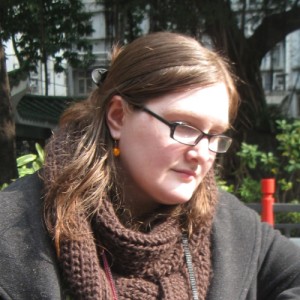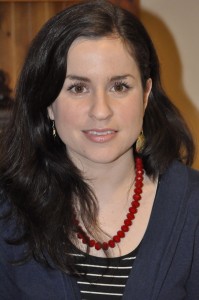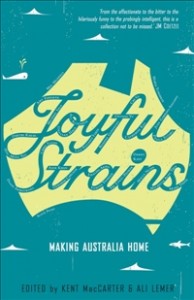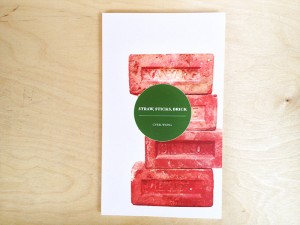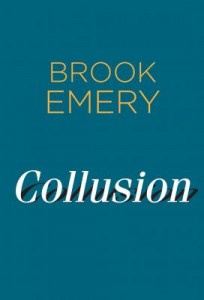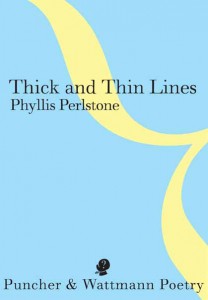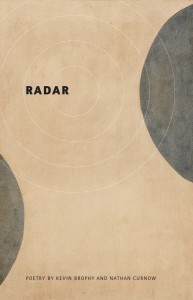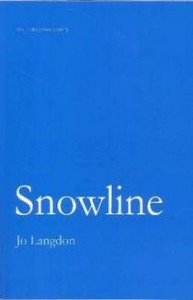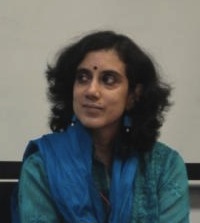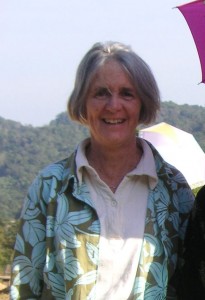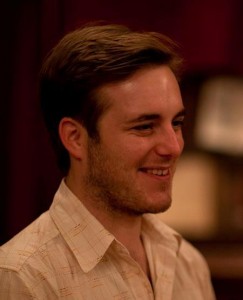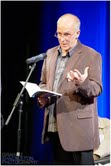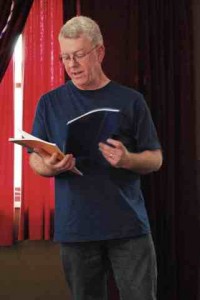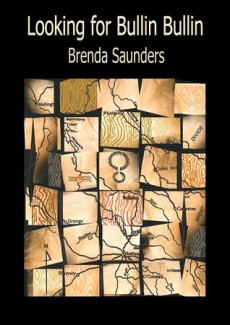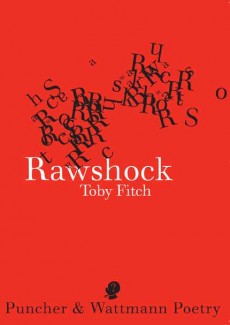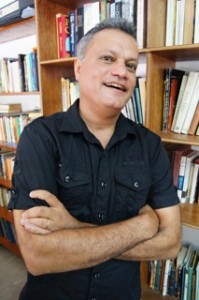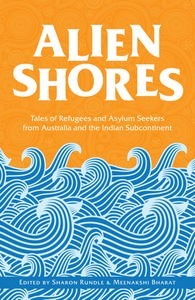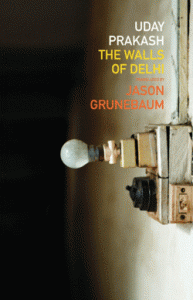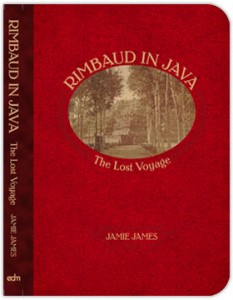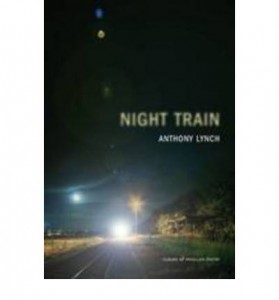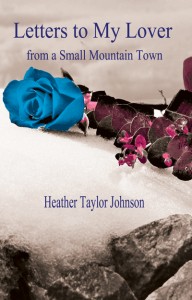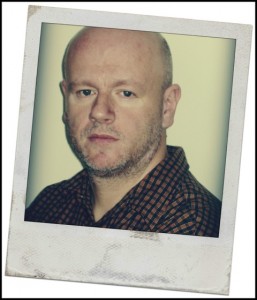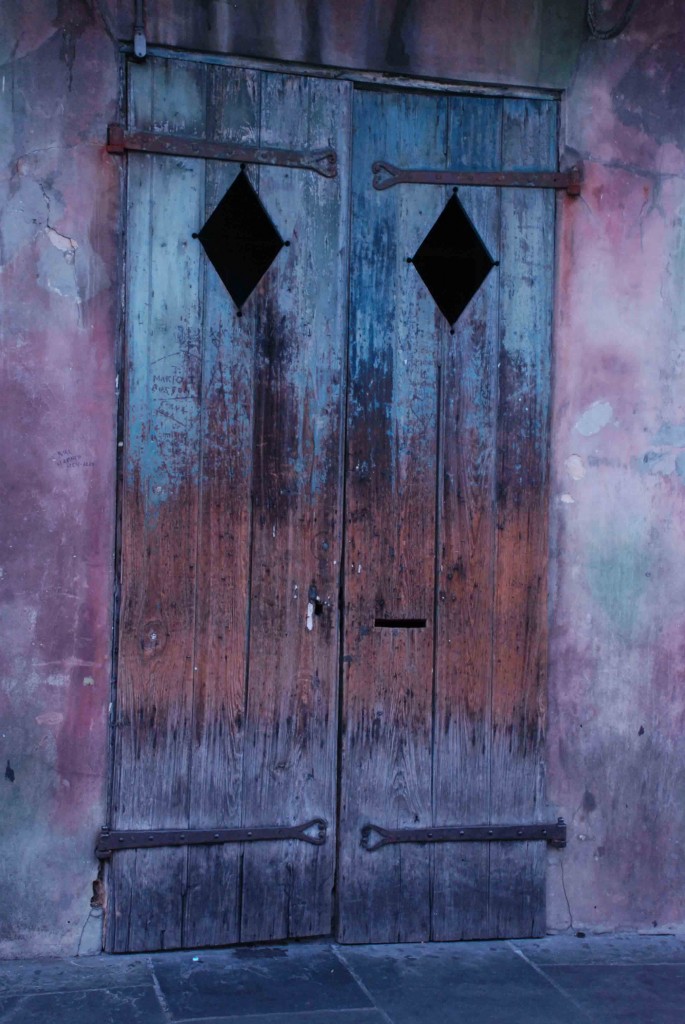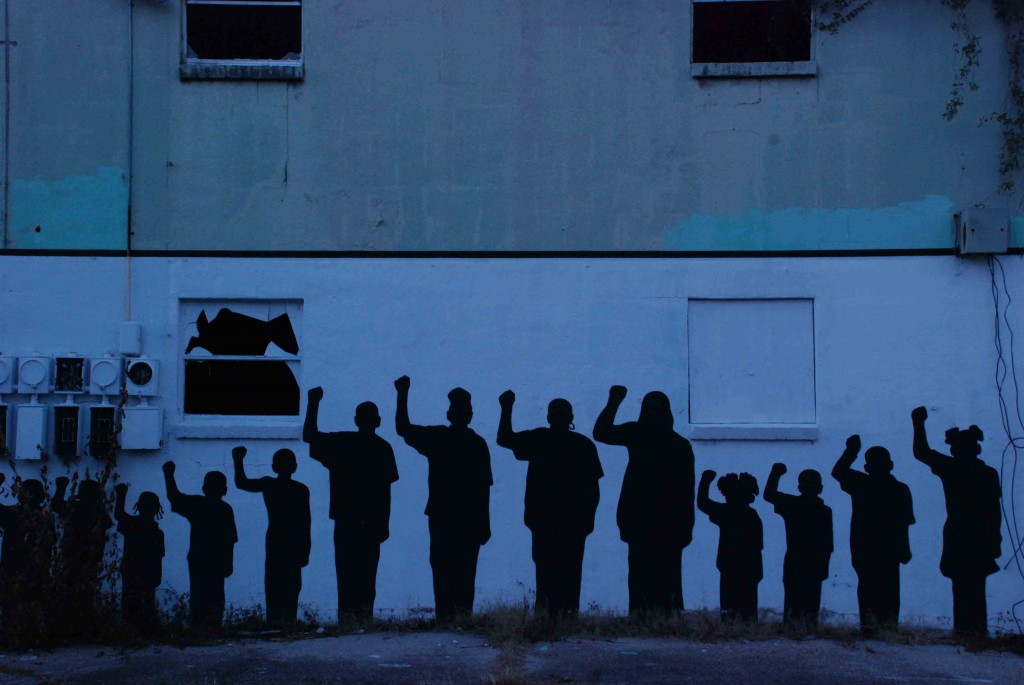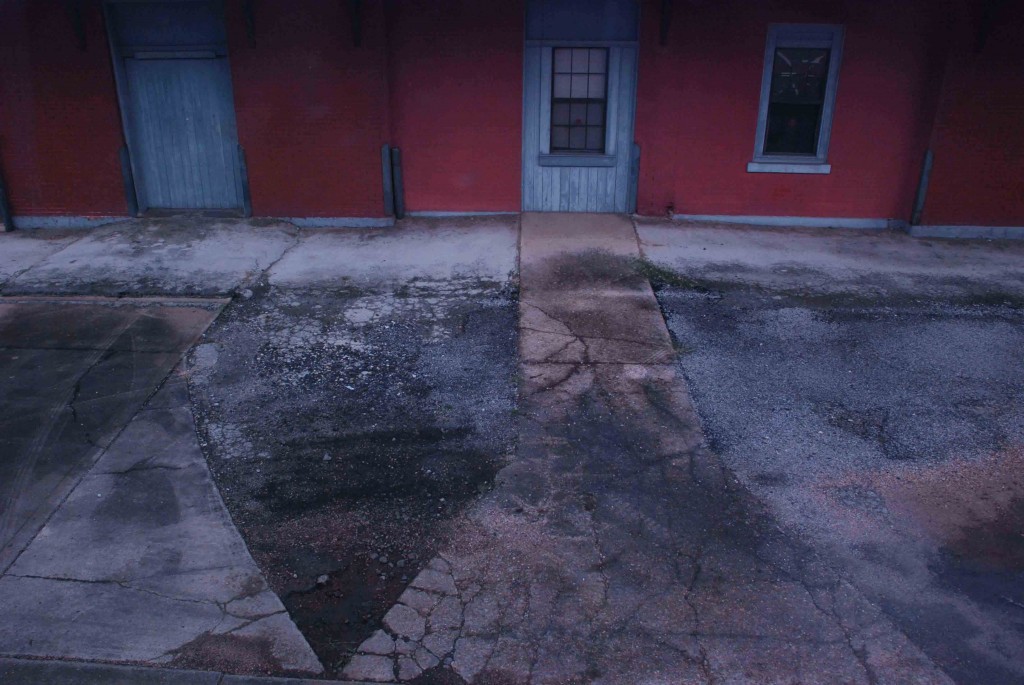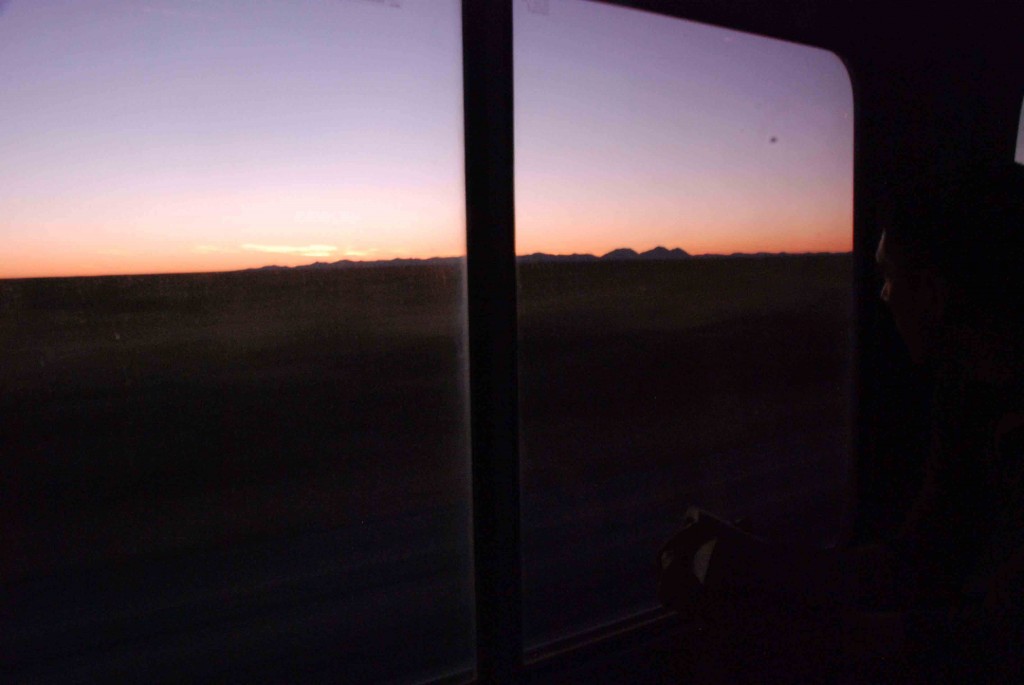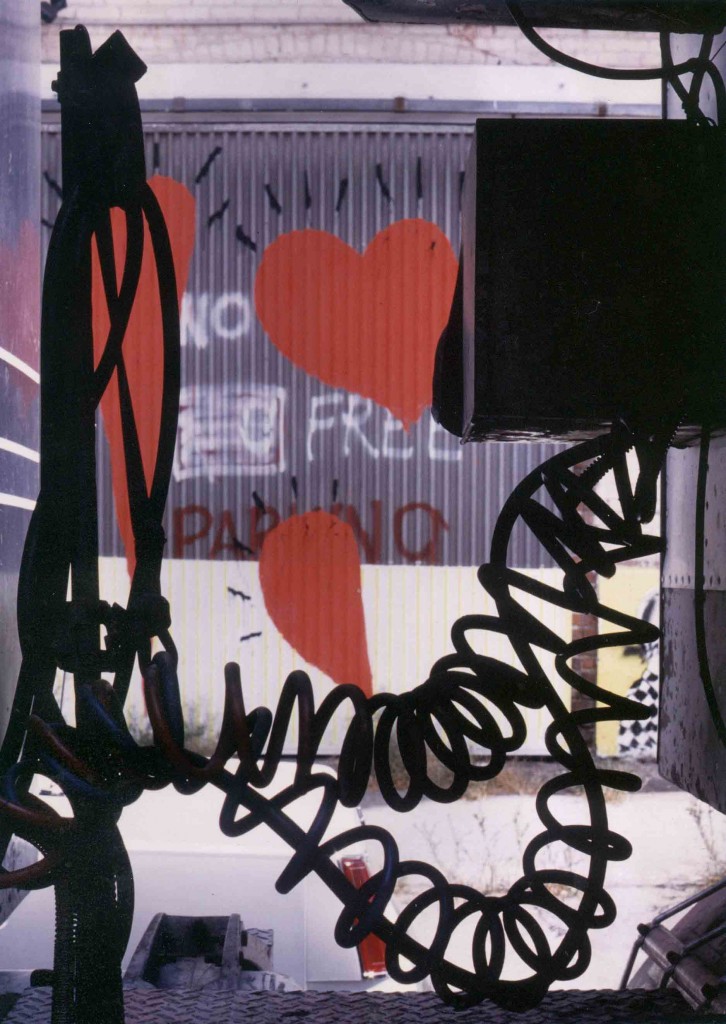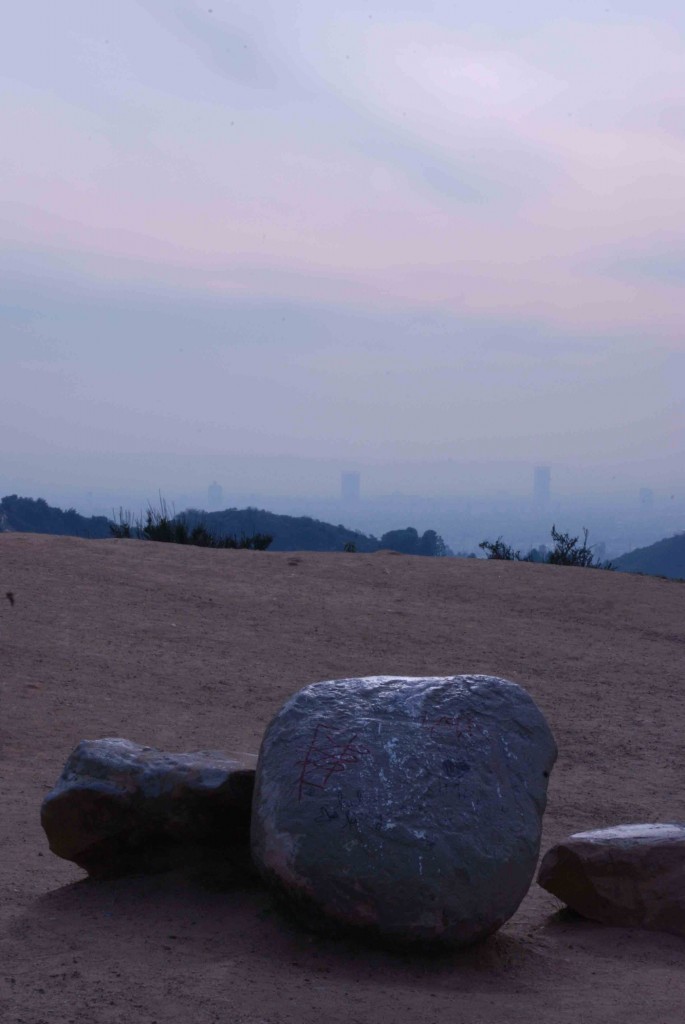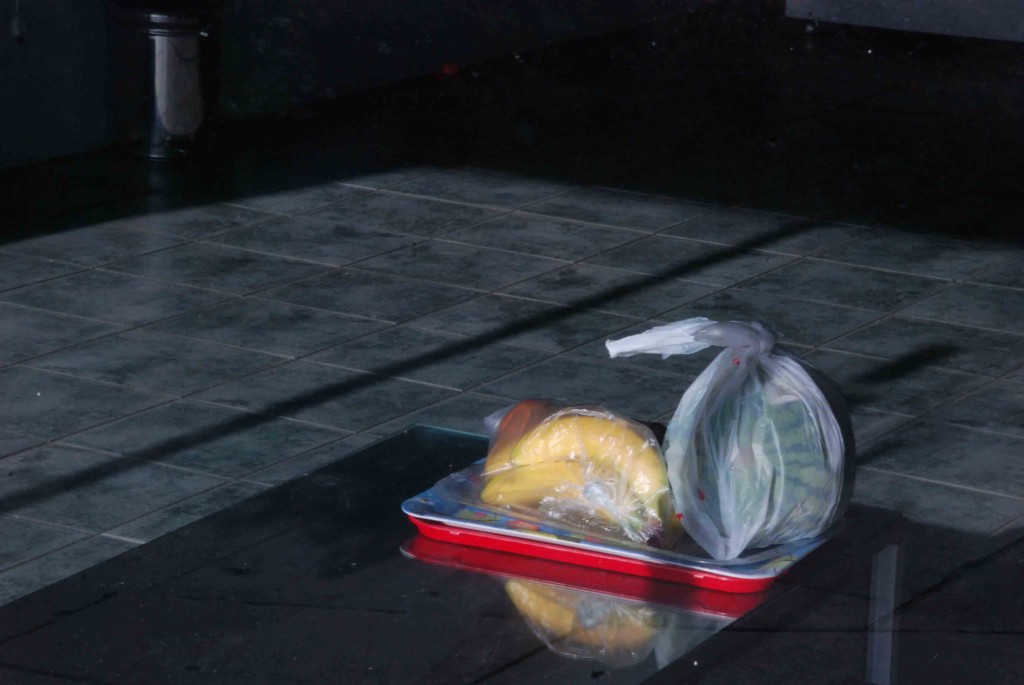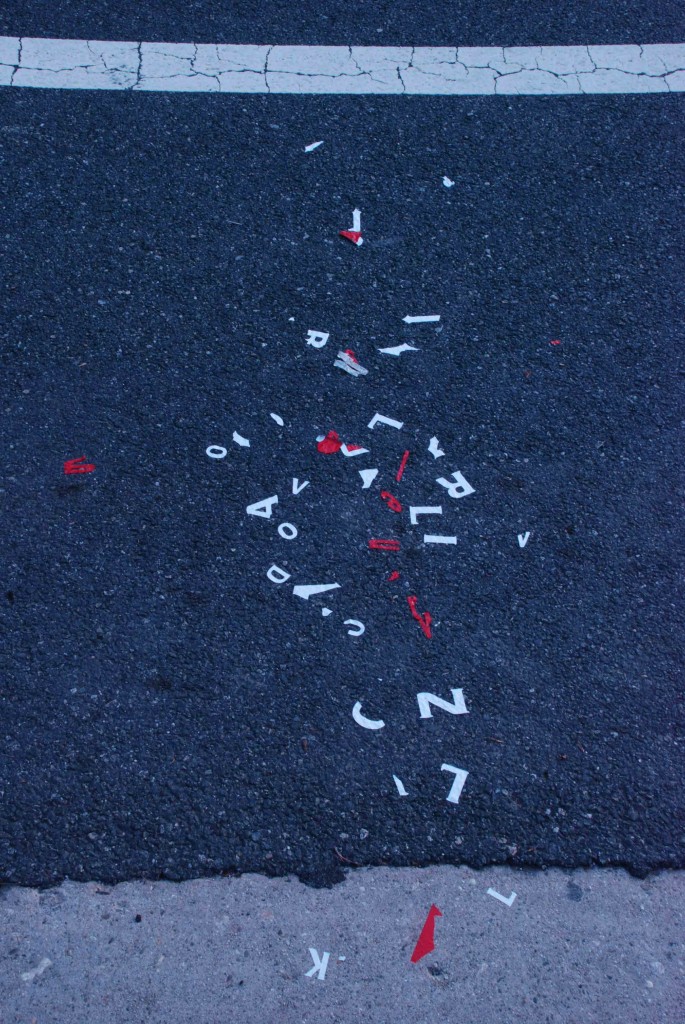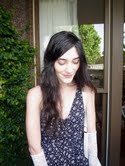
Ankur Agarwal is an poet, translator and teacher from India. His poetry has been published before in “Paper Wall”, “Barnwood Poetry Magazine”, “Cha: An Asian Literary Journal”, and “Halfway Down the Stairs”, among others, and his haiku have appeared in “A handful of stones”. This is the first time he has written prose fiction. He loves playing card games, especially sheepshead, polignac and gin rummy, and learning new ones. He also reviews cinema, primarily European and Indian, at http://indmoviereview.blogspot.com
Silver Plums
Stars died the night I was born, they say. I always grew up believing that, and often as I gazed up into the sky, I searched for vacant spaces, as if like lines of destiny they would tell me something about myself. People go to palmists or fill up questionnaires that claim to reveal their personalities to them, but all I had was the alignments of those celestial bodies: their mysterious twinkling filled me always with alarm, that the world will suddenly end and I will not have fulfilled my destiny. For you see, destiny meant a lot to me.
The monsoon sky told me one day that I will have a lover soon.
1. The merchant
गंगा आए कहाँ से, गंगा जाए कहाँ रे1
Ganga, from where does she come, to where does she go
Every year, when the rains came, also came new faces, of hope and unknown stamp, and that time was the time when we forgot all our miseries: the jagirdar2 forgot how much grain is stored, the rebari3 women forgot how shallow is their well and I used to forget how constricted was my world. Crossing those long ravines whose many hiding places the local warlords and their gangs inhabited, a caravan from the world outside came every year at this time, the only moment when we came face to face with the world beyond the ravines and the desert. For on one side lay those passes bristling with danger while behind us lay a desolate land which no one had crossed alive, and even after that, there were only paid servants employed to kill each other for these scraps of the concept called land. But this is all as I write today: then, when I was merely nine or ten, all I knew that I was always at the grounds where the caravan set its base for two weeks before they set forth again, those eternal gipsies. This was my only means of knowing the world.
It was his loud haggling but always in a pleasant, laughing voice that first drew me there: the largest of crowds was there and he had the choicest of wares. Dates from Iran and chilgoza4 from Afghanistan were what everyone had: but he had intricate wooden elephants, he had lamps built like lotus petals, and he had bangles shimmering in red and green like no one else had. But soon my gaze was drawn from his wares to his face: maybe thirty-five, with a fine moustache that did not seem too silken and a voice thicker than most boys here, his eyes were what struck me. I had never before encountered such eyes in my life and never again will I on any other face. Fiercely burning, those eyes had no heart in all the commerce the man’s voice was so busily conducting: they were far off, as if they were still travelling over the various lands from where he must have bought and traded these goods. They pierced right through men and women as if these were made of transparent stuff; neither kind nor unkind, they seemed indifferent to the very concept of kindness, but rather made way to something as water does, whether it is given a way or not.
I stood transfixed for several moments, and then I picked up the courage to talk to this adventurer with steel-like eyes, this interloper of many worlds who yet could burn. I was fascinated by his eyes as I never was by anything, and to understand them, to know what lies in their depths, I was willing to do anything, to go anywhere. I waited till the crowd thinned, as the evening hour came and many became busy in evening prayers.
“Have you travelled long?”
“Far longer than you have lived.”
His reply and his assured smile did not please me: he did not know how long have I lived. Who knows if I were someone with some illness that made me appear a child? But I continued:
“To sell and buy?”
“Yes, souls.”
“Souls? What are they?”
“When someone comes to ask me a question, I buy her soul. What I give her shall haunt her all her life, and only I can break the spell.”
“Ah, so you’ve already mine. And sell? Whom do you sell to?”
“To those who collect them, for I am a mere intermediary. Those who are not content with the world, but also disdain it, sneer at it, and keep collecting.”
“Why do they collect?”
“To touch the sky – to enjoy many finite forms; to try to prove the formlessness of a world that is glistening with forms and their temptations.”
“And you? You are content?
Before the man could reply, two women with ghunghat5 a foot and half long came, and I became uncomfortable, and I asked him if he had a payal6 for my size. He said no, but he might have to look in his stores, maybe he will have one for me tomorrow, and I said thanks and left him with a twinkle of understanding. But for several days I watched him, gaily conducting his business and yet again far off in a space of his own, and all that time I was thinking of what did he mean by forms and formlessness. Before long, for I knew the caravan would not be staying forever here, I found him while he was eating his simple dinner by the fire. But this time it was he who shot a question at me.
“Have you killed?”
I shuddered at his words.
“No! What do you mean? Have you?”
“Did you not kill the desire to talk to me all this time? Is it not killing? Is it sinful?”
“One cannot do always what one wants. One is not permitted to.”
“Or you allowed the restrictions to rule you. Why do you? Food, water, these?”
He shook a pair of payals in his hand as he said these, and in the half-clouded moonlight, the thick chinking hit against me, as if them and I could never be in one place together.
“You don’t? Why do you trade?”
“You don’t want these?” He ignored my question.
“You know I don’t. Are you content?”
“I am no friend to words, even if you see me use a lot of them during the day. What do you mean?”
“Are you … happy?” I was confused.
“Yes, I am.” He smiled and offered me two closed fists.
I was disappointed by his reply. I don’t know why.
“Choose one,” he said.
“I cannot. You must show me what they contain.”
“As you want. I wanted you to choose your fate blindly, for then you can’t be reproaching yourself, but if you want to do it deliberately, so be it.”
With that he opened his fists: in one palm were lying a couple of something red and beautiful that I had never seen, and in the other were beautiful lifelike imitations of that thing in silver.
“What is it?”, I asked as if entranced; I felt as if he was offering me an untold treasure.
“Plums!”
“Plums?”
“Yes, have you ever heard of them?”
I shook my head.
“When you eat them, your mouth is filled with a heavenly juice, it seems that it will make your whole body fragrant. Their sweetness is not crude like sugar nor apologetic like pomegranate, but they seem to master your body and spirit and take you to another level of experience, another quality of yearning. It is as if you are kissing all that is good in you.”
I remained silent and gazed wonderingly at those blotched red fruits, not so small but not at all big, and I wondered in whose bowls they lie filled to the brim, which lips taste them and kiss each other, and who are the people who watch and tend over them and pluck them: are they also as beautiful?
“They come from the mountains and it is no wonder you have never known them. I have only two with me and here they are for you.”
I stretched out my hand for them and hereupon, just when I was about to touch them, the man put up a warning gesture.
“Remember, you could have only one of the two. The silver ones or these fleshy ones.”
I thought long: the silver ones were beautiful and they looked completely the same if only for the colour.
“Can I ask you one thing before making a decision?”
“Go ahead.”
“Are there fruits more delicious than these?”
“Not according to me.”
“Then I will take the silver ones.”
He gave me the two silver plums, reflecting faintly the clouds above and the fire beside. I caressed them longingly, and then said:
“Before I go, can I ask you one more question?”
He nodded.
“What did you mean by forms and formlessness?”
He laughed, for long he laughed: his laugh was like ice being crushed, with a thousand voices speaking in his laugh. He held his head back and laughed, like a man who decides to do a long and thorough gargle.
I kept looking at him all the while.
“Do you like mangoes?”
“Not much.”
“Well, you could imagine eating plums instead of mangoes, and then the forms of mangoes won’t matter.”
“But do I know how plums taste and feel?”
“No, you don’t. So now you are also in search of the formlessness: you seek to know plums without having anything to do with them.”
“You are sure I seek that?”
He nodded.
2. Jabbar
इतना न मुझ से तू प्यार बढ़ा
कि मैं एक बादल आवारा
Don’t fall so much in love with me
For I am but an errant cloud
“Why don’t you understand me? Life – I can barely bear it. There is something that calls me from somewhere, and I don’t feel it to be of the world. It is outside me and yet inside me, not in those shapes I know, not in the voices that speak to me. How can I rest till then, how can I forget?”
Jabbar had come into my life when I wasn’t even expecting it at all: I was nineteen maybe, and I was busily planning to graduate in a couple of years and go out into the world, to feel the actual world with a real job, all kinds of people from everywhere, a different existence. I wasn’t expecting Jabbar, and like a storm shakes up a tree but leaves it intact, he had done the same to me. And maybe the storm isn’t affected much, not that much as one tree is.
I looked closely into his eyes, as if eyes could frame an answer. His eyes were strangely limpid but also very kind: there was something swimming in there and I could never figure out exactly what. His eyes did not go well with what he was in person: of a strong imposing presence with a big chest, muscular arms, and tall build, he was someone who felt effortlessly strong. Yet those eyes were that of a gentle, almost crybaby creature, and yet there was no sickliness or pity-taking in them. They were just – well, fluid. Which would be an understatement.
I pressed his hands in response and let out a sigh – it was true that I who loved life so much and yet had known everything that he had, the same narrow world of ours – it was true that I could not understand him. Or maybe I did, but could not bring myself to it. I just took his hand in both my hands and pressed it with my warmth.
I had met Jabbar when he was singing the story of Pabuji7 in one of the jagrans8 as the winter had waned but had not yet gone completely. Though he was only among a group of singers and only occasionally sung alone, his voice enthralled me: it had something that this place, or the desert, had not. It was a rich voice, but nothing more about it as a singer: but for me there was something that felt unknown in there. The bright colours that people wore to defeat the desert’s overarching solitude had taken another shape here: bright strands of rebellion, not against a system nor society, but against himself, an anxious struggle to repress himself and as if be a part of the sun-worn sands. He was an orphan, and his parents had been known singers, so singing had been handed down traditionally to him: but from the emotion-packed melodrama of Pabuji’s life, he had created a lament that went against the grain though the listeners were not intelligent enough to detect it. They were deeply moved, rather. A lament that asked why from the wind, not the man.
Jabbar and I spent a lot of time in each other’s company: otherwise always taut as if on some kind of leash, he felt always strangely relaxed in my company, and I felt some kind of world in him that I could not name but which felt to be my world even though I was an alien to it. He was maybe a year younger than me, but for a long time we were unconfessed lovers, each clinging to his and her dream a bit longer because of the other.
“And you? What will you do?”
“What can I?”, he laughed bitterly. “I cannot go anywhere unlike you, for it is here my destiny is to be played out. They say crossing the seas is a sin; do you know why do they say that?”
I knew what he would say, but asked “Why?”
“Because you switch your destinies then. Which is like cheating.”
“And why’s cheating wrong?”
“I am not saying it’s wrong. It is just running – running like that man you told me about for more and more land and never able to return before the sun set. Just like that man. I don’t care about running.”
I took a long time to respond, I kept on thinking. I loved him so much and yet sometimes I wanted to be far away from him, to have never even known him.
“And me?”
He emerged as if from some kind of reverie with some kind of shock, or as if that had never occurred to him, though I cannot tell what had not occurred to him – the question of me or that I would ask him this. Or maybe it was not even this, but he was simply trying to think of me in all this in a new light.
“Yes, me?”
“What about you? You like running – you like the exercise. You do not feel suffocated by this incessant scampering back and forth, you are like a river that flows on and on, giving forth and never ceasing to question.”
“But you hold so much love – and hate – in you. You can also give so much, Jabbar.”
“Maybe, but I am like the sea: I only give what I get, I keep throwing up dead conch shells. Even one day is too long for me: the sun comes up, it plays with a million rays on my blue and green waters, and then it will set in orange splendor shining over me, but I remain where I was, forced to wait for the sun, still and simmering with little waves.”
“But isn’t it you who has chosen stillness?”
“Yes, you are right; but it is not because I have chosen stillness, Ruqaiyya, that I am the sea: but because I am the sea, I have to suffer, I have to remain.”
As the evening faded into night, with hardly a sound except few peacocks’ calls, he asked me: “Tell me, can rivers and sea marry?”
I smiled wryly, “Not until the river loses its character and merges into the sea.”
He insisted, “Not even if the sea can touch the sky?”
I shook my head.
That evening we had our first physical contact. It was the first time both of us had explored another person’s body, and yet we did not have the wild excitement that one would think to be associated with the first loss of virginity. Rather, we made a thorough survey of what each had to offer: a silent and joyful acknowledgment of the pleasures and equally silent passages to more difficult and painful rites. It was as if this one thing remained for us to do, and now each was forever etched in the other, each water, but distinct as river and sea.
When the night deepened, I left Jabbar, I left university, and I left home. I never came back. The merchant’s words had returned to me about those soul collectors who can touch the sky: and it was the merchant who had bought mine and I refused to let it be sold to anyone else. The only possession I took with me besides some money was the two silver plums.
3. Ruqaiyya
हमने देखी है उन आँखों की महकती खुशबू
हाथ से छू के इसे रिश्ते का इल्ज़ाम न दो
I’ve seen the sweet-smelling fragrance of those eyes
Please don’t accuse it of a relationship by touching with hands
A thousand turns of life had left me now a teacher in her forties in a small village in the Himalayas: I had experienced as much of life as I could seek, I had met hundreds of people, many had professed to love me, there were many whose opinions I respected, there were the good friends and the useful acquaintances, and I had been a successful editor of a newspaper that indeed did something – till one day I felt as far from what I had started for as that night when I had left the merchant. I had met impressive men and women who had done brave and great things; I had met all shades of people from the lowly to the highest, from the thinker category to the practical no-frills one, and yet never had I again seen the like of those eyes that first led me to ask: who am I? where is my home?
I had never found that home, for home to me is beyond comfort, beyond refuge: it is the place where I find refuge with myself, not from myself. And all the homes I had found were of the latter kind: hadn’t Jabbar said I was always running? From myself or something, I didn’t know. And now, I was buried deep inside a small, remote mountain village since the past seven years: no one knew me here, and I was able to slowly persuade myself that this indeed was my true home. I had no contacts left from my old worlds, and I had no keys to my house: it was always unlocked, and I had forsaken the feeling of possessing as freedom. Yet, something lacked, something gnawed. There was yet a missing link.
One snow-clad night, when you wouldn’t even bet on a jackal roaming outdoors, I heard a knock on my wooden door; a knock that had no permission in it, but simply information. Whoever knocked wasn’t saying “May I” but instead “I am going to.” My initial thoughts didn’t land up there, though; at first, I thought who could it be in such weather. A lost traveller? But hardly anyone knew of this region and no trekkers ever came here. None of my schoolboys would venture out from their homes right now. I took the lantern and pushed the heavy wooden door.
Outside was a Buddhist monk with his shaved head and maroon robes.
“Could I rest in your cowshed?” For I kept a cow since a year.
As the man spoke he looked directly into my eyes, and I instantly recognized them: they were the very same eyes, and no other eyes could be these. I was completely unnerved, and my lantern fell and almost went out: I regained my composure a bit, and then studied his face for some time before answering. He had changed greatly, and but for the eyes I wouldn’t have recognized him: a kind of innocent smile played on his face, which had sunken-in cheeks now, and his eyebrows, once thick like his moustache, were almost nonexistent, as was his moustache. He had aged greatly, and he looked much older than what he must have been. Yet, he was firm on his feet and nimble as just any man: it was only his face that had so aged.
“Come in”, I smiled, “please come in, you can have a rest certainly, but I can also prepare you some rice.”
“Thanks, child; if it does not give you any trouble.”
“Surely not.”
He came in with his quite big sack kind of bag slung on his shoulder and as he was readying to sit on the floor, I offered him a chair: I didn’t know if monks can sit on chairs or not, but he didn’t refuse it.
“You’ve got a few scratches below your knee there,” I said.
“It’s nothing, just some thorns: it was so dark and the path was very narrow.”
“Very well, I will grind some charoli9 and it should be better by tomorrow morning. Are you passing through here?”
“Yes, and you?”, he asked with a smile. The full-fledged smile hadn’t changed: he still retained a certain fondness for turning your question on you.
“Me, too, though I don’t know to where.”
“Can anyone know that?”, he wondered. I nodded.
I gave him the ground charoli, and as I prepared the rice, he applied it slowly on the bleeding marks on his leg. In between, though I didn’t think there would be a probability of that, I brought out the two silver plums and kept them on the table before him, but he didn’t seem to take any special interest in them.
Outside was the noiseless noise of falling snow, and the smell of rice tainted with camphor and cardamom slowly swirled inside and became one with the wooden-hued habit of the monk, as like sought like. Apart from me, everything seemed living and un-living at once: the flickering of the fire made monster shadows out of us and it seemed to be the only being outside the realm of animate or inanimate there. Something to whom the concept of animate doesn’t apply.
He ate slowly but he seemed to appreciate it. I ate nothing, and we kept silent gazing at each other. The very same adventure was still in his eyes: the only difference was that now he seemed to be at the same place where physically he was, unlike in the past. Or, rather, he seemed unreal: thus even physically he wasn’t here. He was and was not. He was like a ghost, but a ghost who ate rice and who had wounds made by thorns brushing against his legs.
“Have you found what you sought?”, I asked.
“I cannot answer that.”
“Why? I won’t understand?”
“No, child; it is that I do not seek.”
“Then why do you live? Or, how are you able to?”
He smiled and remained silent for a long time.
“I am indifferent to living or being dead. In fact, I don’t even know what am I, alive or dead. However, I have distinct memories, which tell me I am alive, perhaps. Perhaps.”
“I meant, what takes you to the next day?”, I again asked.
“To see the new sun”, he smiled. “I am curious. Or not curious – I cannot choose the word. I am no friend to words.”
Then, after a moment’s silence, he said:
“I will sleep in the cowshed, child. Thank you for the meal. You have good hands. I have not much to offer you before I take your leave. Winter has already come, so you might not be having these now: I have only some with me, they are for you.”
With that, he brought out some damask plums from his bag and kept them on the table in front of him. As he kept them there, he took back the silver plums and smiled:
“You can taste the real plums finally.”
NOTES
1All section opening Hindi quotes are fragments/refrains from Hindi songs.
2Recipient of jagir, a land grant/land taxes.
3Also spelt rabari, cattleherders who traditionally were nomads but in modern times it is rarely the case.
4Pinus gerardiana seeds.
5Veil worn by primarily Hindu women in certain Indian communities.
6Ankle bells, worn around ankles, as the name suggests. A must for the traditional Indian dance of kathak today.
7Name of a god revered by certain communities in northwest India, in particular by rebaris.
8Hindu custom of all-night worship; it can be organized for one to several nights in running.
9Seeds of Buchanania lazan; popularly called as chironji in India.
 Jan Owen’s most recent book is Poems 1980 – 2008. Her selection of Baudelaire translations has been accepted for publication in the U.K., and a New and Selected, The Offhand Angel, is also forthcoming in the UK with Eyewear Publishing.
Jan Owen’s most recent book is Poems 1980 – 2008. Her selection of Baudelaire translations has been accepted for publication in the U.K., and a New and Selected, The Offhand Angel, is also forthcoming in the UK with Eyewear Publishing. 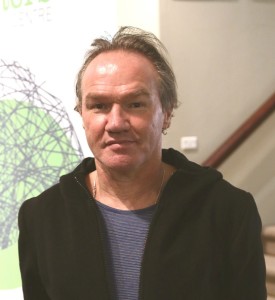

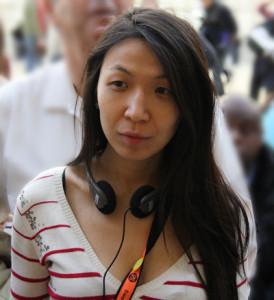


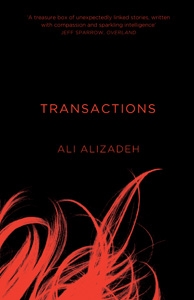
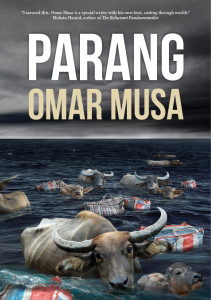 Parang
Parang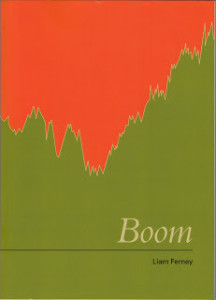 Boom
Boom

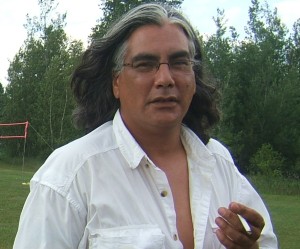
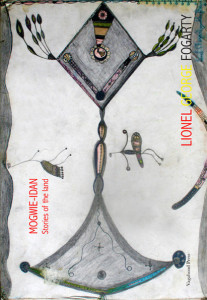
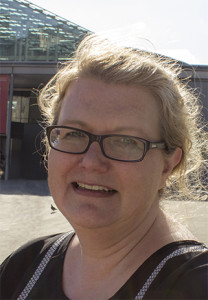 Sharyn Belcher lives in Melbourne with her husband and three sons. She teaches piano part-time and is currently studying literature at Monash University. Her great loves are her family, nineteenth-century Realism, writing, and playing the grand piano she bought instead of replacing her worn-out car.
Sharyn Belcher lives in Melbourne with her husband and three sons. She teaches piano part-time and is currently studying literature at Monash University. Her great loves are her family, nineteenth-century Realism, writing, and playing the grand piano she bought instead of replacing her worn-out car.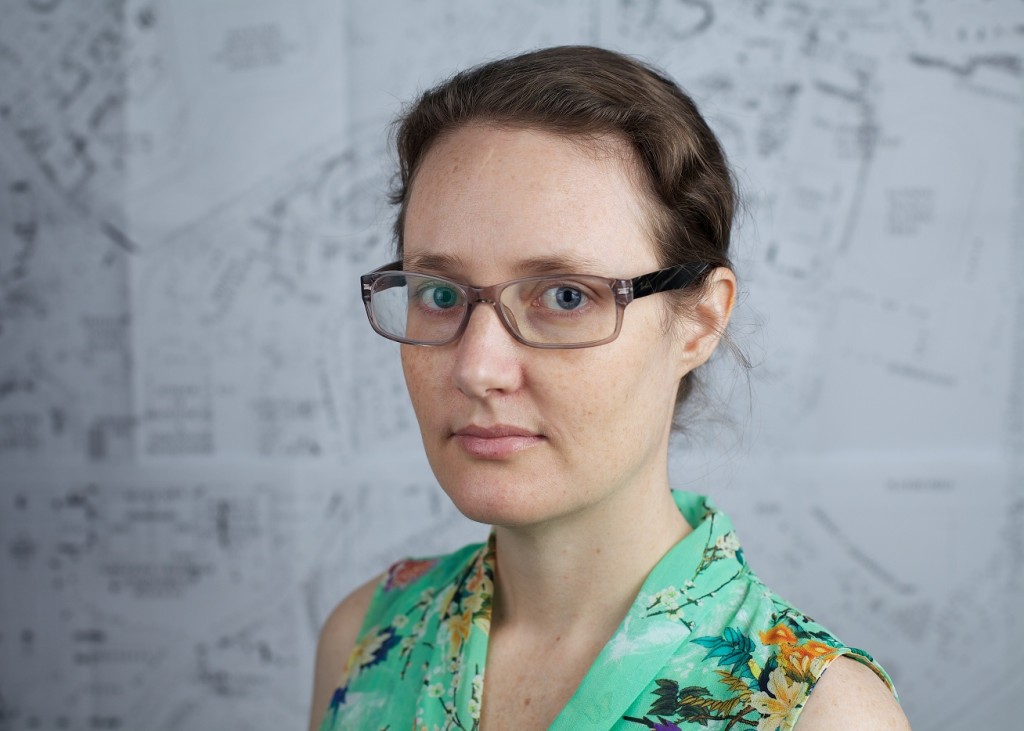 Jen Crawford is a New Zealand poet who coordinates the Creative Writing Programme at Nanyang Technological University, Singapore. Her poetry collections include Bad Appendix, Pop Riveter and Napoleon Swings. New work can be found in Axon 5, Brief 49 and Shearsman 95 & 96.
Jen Crawford is a New Zealand poet who coordinates the Creative Writing Programme at Nanyang Technological University, Singapore. Her poetry collections include Bad Appendix, Pop Riveter and Napoleon Swings. New work can be found in Axon 5, Brief 49 and Shearsman 95 & 96. 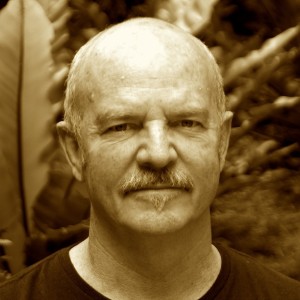
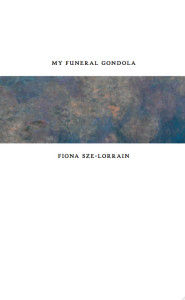
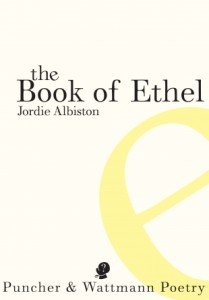

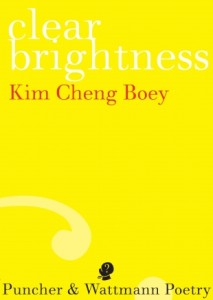
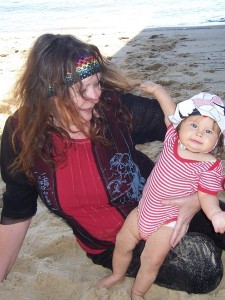
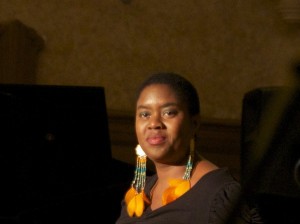








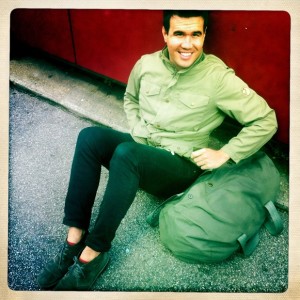
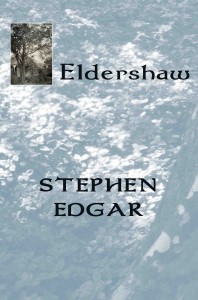 Eldershaw
Eldershaw


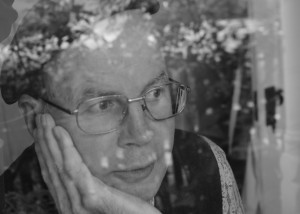 Melbourne-born poet, Peter Bakowski, keeps in mind the following three quotes when writing poems ‐ “Use ordinary words to say extraordinary things’–Arthur Schopenhauer, “Writing is painting”– Charles Bukowski, anand “Make your next poems different from your last”–Robert Frost. Visit his blog
Melbourne-born poet, Peter Bakowski, keeps in mind the following three quotes when writing poems ‐ “Use ordinary words to say extraordinary things’–Arthur Schopenhauer, “Writing is painting”– Charles Bukowski, anand “Make your next poems different from your last”–Robert Frost. Visit his blog 

